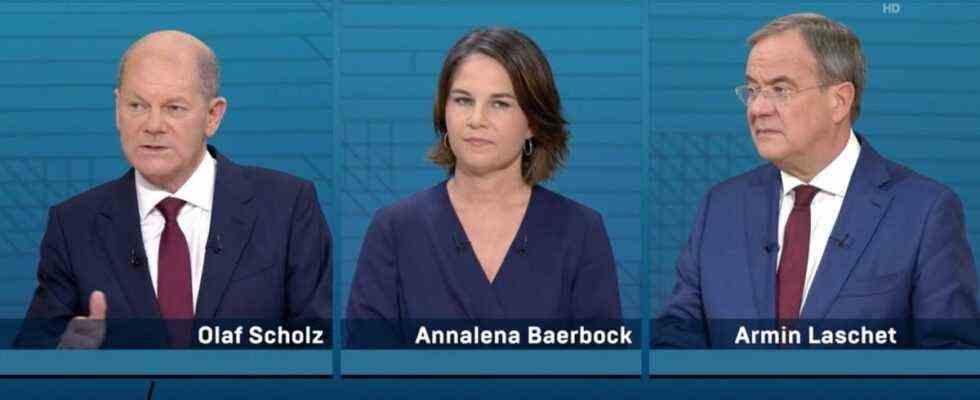Meticulous timekeeping was actually the goal of the stopwatches in the TV trio of ARD and ZDF. Meticulous timekeeping is anyway the fetish at the moment in every TV exchange of blows between the chancellor candidates, so that one filter bubble does not complain about the advantages of the other filter bubble afterwards. The major broadcasters ARD and ZDF unfortunately met in the Triell last Sunday, like the portal Over media researched, measured not just once, but twice. Complete chaos. Blame, say the broadcasters: the software.
While still on the show, it was Annalena Baerbock who noticed that the stopwatches in the studio weren’t running properly, that Scholz’s kept running even though he wasn’t talking anymore. Moderator Maybrit Illner had to admit on behalf of the unfortunate double moderation: “That won’t work!”
In the course of the broadcast, the problem should have been resolved, Illner’s co-presenter Oliver Köhr said at least, and corrected times were displayed. At the end of the evening, after more than 90 minutes of debate, the final result was: Armin Laschet spoke two minutes more than his opponents with a speaking time of 26:25 minutes. But this result is not correct either, as the ARD and ZDF editorial team responsible for the broadcast has now confirmed. Even the additional hand stop that was started after Baerbock’s objection apparently did not lead to the goal. The moderators, ARD and ZDF now explain, had in the end transparently indicated that the participants were overall “relatively close to each other” and that the time difference could no longer be compensated for by the end of the program.
In reality, Annalena Baerbock had significantly less speech. “In the end, Olaf Scholz had a speaking time of 24:51, Armin Laschet of 24:13 minutes, so only 38 seconds apart. Ms. Baerbock, on the other hand, had about 3 minutes less speaking time.” This is what the ARD and ZDF end result is really really true for the time being.

